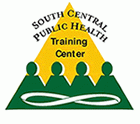
Productive Communication Skills
Course Description:
This course is designed to provide you with the communication skills needed to help you take the next step up in your organization. After taking this course, you will be able to reach a positive outcome with those you supervise by understanding personal communication style differences, using turn-taking effectively, noticing facial expressions which may signal emotions, and maintaining an appropriate body posture when communicating. You will learn the preferred pace of the different styles, and how styles shift under stress. You will learn how to increase your productivity by identifying high payoff activities, handling conflicting priorities, and using your most productive time of day to your advantage. You will learn how to deal with difficult people by improving your listening skills and becoming a more persuasive person.
Target Audience
Academic Faculty/Staff, Federal Government Employees, State Government Employees, Local Government Employees, Non-Government Employees and Students
Learning Objectives
- Describe good working relationships with your colleagues that build trust
- Identify the communication breakdowns that come from personal style differences
- Name the personal strategies that increase your productivity
- Interpret with skill the words of your colleagues as well as understand the meaning behind their words
- Describe how to manage others with respect
Instructor:

Tim Keogh, PhD
Tim Keogh is an Assistant Professor at The Citadel School of Business Administration, and Adjunct Associate Professor at Tulane University’s School of Medicine and School of Public Health and Tropical Medicine, where he was Director of the Master of Health Administration Program. Dr. Keogh received his Ph.D. in English with concentrations in Linguistics and Technical Communication from Louisiana State University. He teaches Communications for Leadership in the Master of Business Administration Program at The Citadel and Managerial Communication in the Master of Medical Management Program at Tulane.
Formerly, Dr. Keogh taught Management Communication at Tulane’s A.B. Freeman School of Business and was Director of the Freeman School's Language Orientation Program for International MBA students. He has been a linguist in Army Intelligence, receiving a diploma in Modern Standard Arabic from the Defense Language Institute. He was a Writer/Editor for the National Institute of Education in Washington, D.C and received a Fulbright Grant for graduate study in the humanities at the University of Strasbourg, France.
For six years he held the position of Manager of Corporate Training and Development at a Fortune 500 energy services and engineering company, where he designed and taught a number of management development courses both in the U.S. and internationally. Dr. Keogh has won the Freeman School MBA teaching award and several teaching awards in both the traditional and the executive programs in Health Systems Management. He has trained physician educators at the Moscow Medical Academy and lectures for the American College of Physician Executives, the American College of Healthcare Executives, and the Society of Hospital Medicine on communication and physician performance topics. He has published a number of articles on these topics. He is a certified instructor in Total Quality Management and in Front-Line Leadership, and a member of Delta Omega, the National Public Health Honor Society.
Available Credit
- 4.00 Participation/CETulane Professional and Continuing Education (PaCE) awards 4.00 hour(s) of credit for completing Productive Communication Skills
Price
Required Hardware/software
System Settings
This course is designed to work most effectively if your computer and internet connection meet certain minimal requirements. This course can be accessed using a Windows 10 PC or a Mac with High Sierra1, Mojave, or Catalina. Pop-up blockers should be disabled when viewing the course. Internet Explorer 11 (for Windows 10), or the current version of Google Chrome, Mozilla Firefox, or Apple Safari (for Windows 10 and or Mac) is required. Many of our courses require Java and JavaScript enabled.
Links to External Websites
Links to websites outside this course will open in a new window or tab. Some browsers may minimize the course window. If this occurs, maximize the course window to return to the course.
Adobe Acrobat Reader (for desktops and laptops)
Adobe Acrobat Reader is required to access some documents in this course. If you need to download a free copy of Acrobat Reader, click here.
Internet Connection Speed
A minimum download speed of 1.5 Mbps is recommended for an optimal experience, which is commonly the speed associated with a basic DSL or a cellular/satellite connection. A faster connection, such as cable or fiber service, with further enhance your online experience. A Wi-Fi connection is generally acceptable, but it is dependent upon one of the two services mentioned above. You can check your internet connection speed at http://www.speedtest.net/.

 Facebook
Facebook X
X LinkedIn
LinkedIn Forward
Forward